Conference overview
Our theme for 2023 was Engineering Inclusive Cultures: Sustaining our People, Practice and Planet. Held at Prince Philip House on 2 March, the conference saw experts and practitioners from across the engineering profession explore the transformational impact of culture on how we nurture our teams, structure our thinking, and approach the challenges facing our planet.
Our conference scribe captured this video of how the day unfolded.
The conference was divided into three sessions:
- Session 1- People:A highlight will be the launch of the 2022 Inclusive Cultures research. Building on the ground-breaking findings of the 2017 report, this unique study of culture and inclusion informed by over 1,600 UK engineers will provide significant insights to how individuals experience D&I within engineering.
- Session 2 - Practice:Panels and group discussions will explore how best practice can be implemented at specific stages of an individual’s career journey. We will also introduce the newly developed D&I in Engineering Systems Map which explores the role of leadership in making the industry more inclusive.
- Session 3 - Planet:This session will bring a more global perspective, exploring D&I's importance in solving some of the topical problems that engineering can address.
Speaker profiles
Host:
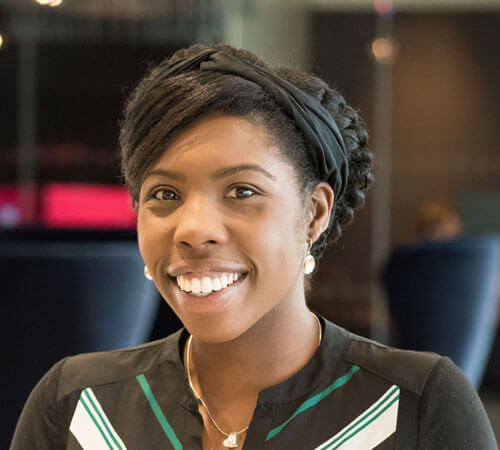
Rosa Morgan-Baker Senior Manager for Diversity and Inclusion at the Royal Academy of Engineering.
Rosa leads the Academy’s work with industry to accelerate the implementation of diversity and inclusion good practice throughout engineering. Her career started in the education sector, supporting young people in developing their literacy and writing career development programmes. Moving to the charity sector, Rosa worked closely with hundreds of businesses across multiple sectors, providing consultancy and training on building inclusive practice across an organisation and championing social mobility.
Alongside her focus on diversity and inclusion, Rosa has specialised in strategic development and system change, leading on fundraising, partnership development and programme innovation as Director of Development of two social mobility organisations.
She continues to consult on fundraising and strategy development as Co-chair of the Fundraising Advisory Committee at The Cancer Awareness Trust.
Keynote speaker:
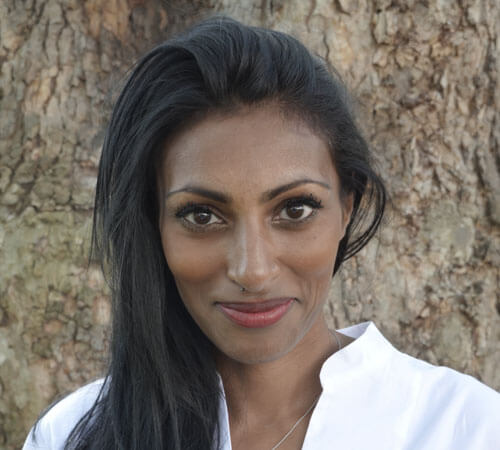
Dr Shini Somara EngD, BEng(Hons), Technology and Innovation broadcaster, BBC
Dr Shini Somara, originally a mechanical engineer and fluid dynamicist, is an award-winning science, technology and innovation broadcaster. To date, she has authored seven STEM books for young people, most recently including the illustrated, Imperial College-supported ‘Engineers Making a Difference’, aimed at 12–15-year-olds considering their future careers.
Shini translates technical information into entertaining media for the BBC, Channel 4, PBS Digital, UKTV, Sky, Discovery, The Science Channel and Al Jazeera. On YouTube, she hosts two free educational series: Crash Course Physics and Crash Course Engineering, which have received over 58 million views altogether.
Through her broadcasting work and podcast, mentorship for PhD and masters students and experience in engineering, Shini is determined to help boost innovation by championing equality, diversity and inclusion in STEM. Her new book, Engineers Making a Difference, celebrates and represents equality, diversity, inclusion and talent involving 46 engineers across many genres of engineering in the UK. It will be published on 2 March 2023.
Find out more on Dr Shini Somara's website.
Launch of the inclusive cultures research
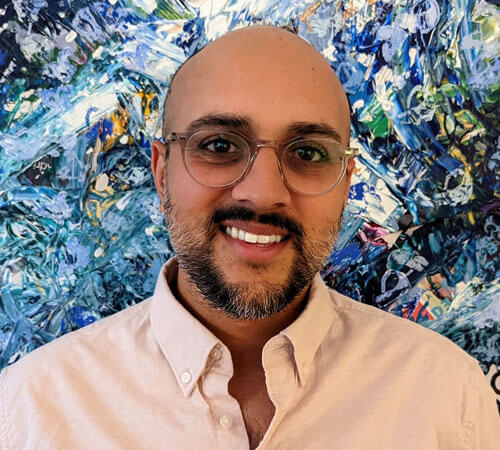
Dr Arun Verma, Senior Manager, Diversity and Inclusion, Royal Academy of Engineering
Dr Arun Verma is a leading figure in implementing and integrating intersectionality in systems, policy and programmes both nationally and internationally. He is a Senior Manager for D&I at the Royal Academy of Engineering, an academic tutor at the University of Dundee and a Fellow of the RSA. His work at the Academy focuses on contributing insights and innovation to further D&I through policy, research education and the professional engineering institutes. He has led the integration and embedding of intersectionality and anti-racist practice in government commissioning, national and global programmes development, and education. He has been granted several awards supporting and facilitating his research including a Nuffield Research Placement and Higher Education Authority doctoral funding. In 2022, he was nominated as an Inspirational Diversity and Inclusion Leader by d&I Leaders.
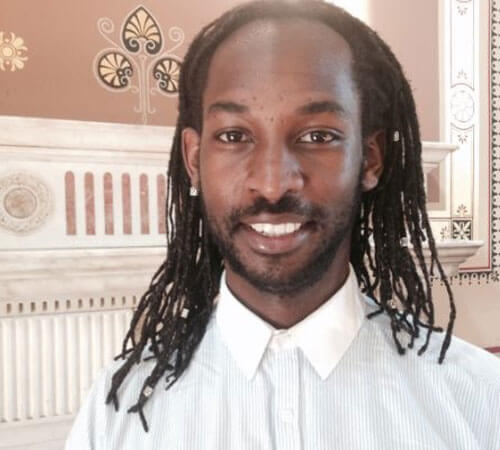
Yohanes Scarlett, Policy and Research Advisor, Diversity and Inclusion, Royal Academy of Engineering
Yohanes Scarlett is an experienced Equality, Diversity and Inclusion (EDI) professional with expertise in race and ethnicity. At a young age, Yohanes volunteered at local youth clubs, and the young people he worked with informed his interest and knowledge of equality and social justice. He is currently the Policy and Research Advisor for D&I at the Royal Academy of Engineering, where he has carried out primary EDI research. He has also overseen a robust and action-focused EDI research programme, exploring the engineering profession. Yohanes attended the US Embassy’s Young Ethnic Minority Leadership Programme in 2014. In 2020, he worked as one of the principal researchers on the influential Hamilton Commission report: Accelerating Change: Improving Representation of Black People in UK Motorsport.
Session 1 - People: Are we creating inclusive cultures in engineering?
Panel discussion and Q&A
Panel Chair:
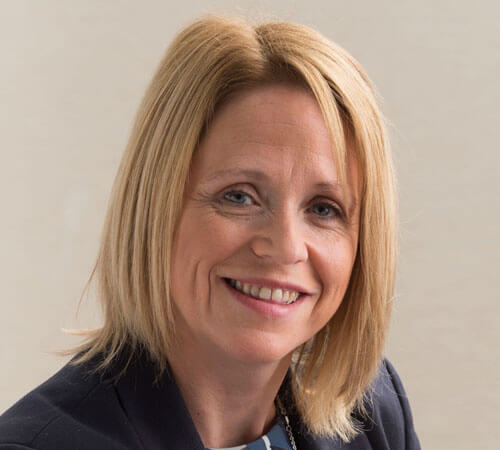
Louise Parry, Director of People and Organisational Development, Energy and Utility Skills
Louise is Director of People and Organisational Development and a Board member at Energy & Utility Skills, which helps employers in the energy and utilities sector attract, develop and maintain a sustainable, skilled workforce. She is responsible for people, organisational resilience, health and safety, and business continuity. As part of her role, Louise leads on diversity and inclusion. She has played a key role in establishing the award winning Energy & Utilities Inclusion Commitment and sector-wide inclusion measurement framework. A Chartered Fellow of the Chartered Institute of Personnel and Development, Louise is a senior HR leader and an executive coach with over 20 years of experience working within HR, diversity and related roles. Louise is on the Board of the Women’s Utilities Network (WUN) and is a member of the Royal Academy of Engineering’s Industry Leadership Group.
Panellists:
John Bradbury, Senior Consultant, Eunomia, Operations Director, InterEngineering
John is a Senior Consultant at Eunomia, an environmental consultancy with 10 years of experience in the mining, minerals processing and manufacturing sectors. John trained as a chemical engineer at the University of Adelaide. He started his career in an engineering consultancy working in a remote mine in South Australia and designing oil and gas facilities. Upon moving to the UK, John gained experience in manufacturing working at Tata Steel and Catalent Pharma Solutions in process improvement and finally working at Amcor Flexibles as a continuous improvement manager.
John is the Operations Director for InterEngineering, a LGBTQ+ group aiming to improve inclusion and diversity for LGBTQ+ people in engineering. John leads the group and facilitates best practice workshops, organises site tours and socials for InterEngineering members, and leads the future strategy for the organisation. John is also on the Royal Academy of Engineering's Diversity and Inclusion Steering Committee.
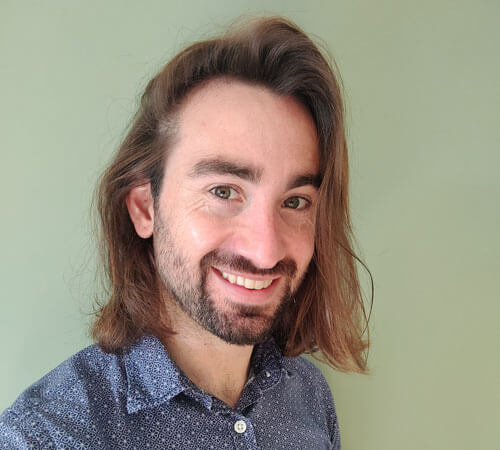
Vanessa Burton, Assistant Geotechnical and sub-structural engineer, Mott Macdonald
Vanessa Burton is a civil engineer with a focus in geotechnical and sub-structural engineering. As a graduate of the University of Surrey with a master’s degree in civil engineering, her career has mainly focused on major multidisciplinary projects in transportation, rail, aviation, and nuclear. She is currently working on HS2 in the foundations design team. Alongside her role, she is the Advancing Race and Culture Employee Run Network Chair, a local authority governor, a STEM ambassador, and a mentor on the Ground Undergraduate Mentoring Programme. In her career, Vanessa has won numerous awards and scholarships such as: Ground Engineering Award’s 2021 Rising Star; the Association for Black and Minority Ethnic Engineers’ 2021 Young BME Professional of the Year; Women in Rail’s Rising Star of the Year in 2020; and was named in the Financial Times and Inclusive Boards’ Top 100 Most Influential Woman in Engineering List in 2019.

Ben Rose, Associate Director, Atelier Ten
Ben is Associate Director at environmental design consultants Atelier Ten, where he is responsible for public health services, water conservation design and services coordination. Ben has wide-ranging experience of sustainable water technologies and design techniques and has implemented this on several projects in the UK and the Middle East. His project experience includes sports venues, residential and high-end luxury residential, educational, mixed-use schemes, commercial, and industrial developments.
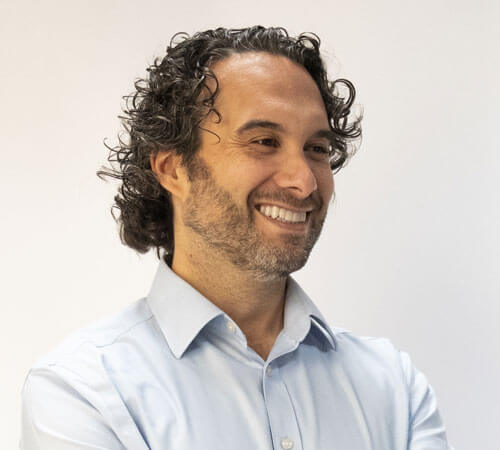
Mohammed Marikar
Mohammed oversees the transatlantic Digital Engineering practice within RBC Wealth Management's Digital & Data Transformation group, as well as our A.I. Lab in the UK. He leads a team working on practical applications of artificial intelligence in sales and client service enablement, as well as R&D programmes seeking to improve RBC’s long-term competitiveness in digital solutions for both advisors and clients. Born in London (UK), Mohammed holds a Bachelor of Science in Mathematics with Management from Imperial College London and is an Associate of the Royal College of Science. He is also a trustee of The Brokerage Citylink, a social mobility charity helping disadvantaged young people achieve their career potential. Mohammed started his financial career in 2004 as a trainee with UBS Investment Bank and progressed to become one of its youngest Associate Directors aged 23. He was headhunted by RBC Wealth Management International in 2013 to introduce a data-driven approach to UK sales and created RBC’s UK A.I. Lab in 2015.
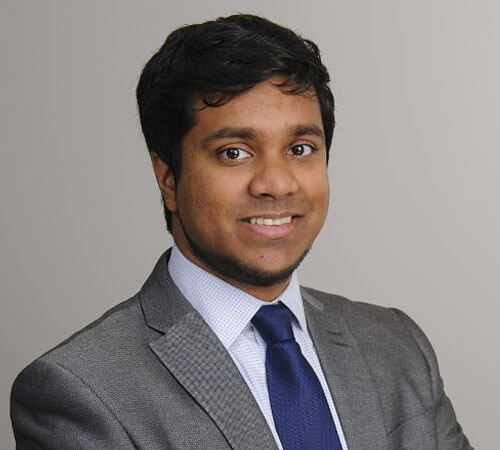
Session 2 - Practice: Building inclusive cultures day-by-day
Panel discussion and Q&A
Panel Chair:
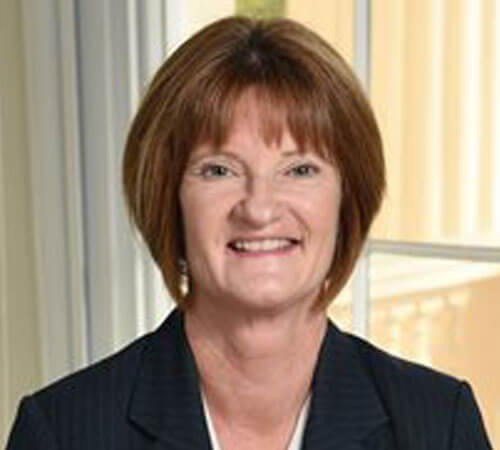
Dame Sue Gray DBE CB FREng, Former Director General of the Defence Safety Authority and Royal Academy of Engineering Trustee
Dame Sue Gray was Director General (CEO) of the Defence Safety Authority from March 2019 to January 2022. She led the regulation and assurance of military equipment and activity across air, land, sea, nuclear, munitions, medical, fire, and the environment. Previously, she was Air Officer Commanding 38 Group Royal Air Force (RAF) between 2016 and 2019. In this role, she led over 2,000 personnel supporting UK military deployments worldwide. She was also Head of the RAF engineer profession, recruiting, developing and maintaining safe working practices for over 15,000 technical staff, and responsible for developing the strategic plan for the RAF’s estate. Previous appointments include operational tours in Northern Ireland and Iraq, followed by a series of progressively senior roles in defence equipment and support. As a lifelong STEM advocate and mentor, she is also a Trustee of the Royal Academy of Engineering. Her other Interests include competitive equitation, holiday skiing, fair weather walking, and travel.
Panellists
David Osei - Control Systems Engineer, Delta Cosworth and alumnus of the Academy’s Graduate Engineering Engagement Programme
David Osei is a control systems engineer and an alumnus of the Academy’s Graduate Engineering Engagement Programme (GEEP). He studied a master’s in engineering at Loughborough University. In his current role, David programs vehicles such as cars and motorbikes. He has previously worked on the battery and vehicle control systems within Formula E cars, electric motorbikes, hybrid racecars, and supercar engines. David’s experience of GEEP helped him develop the skills to apply for jobs in top automotive companies. He now mentors and guides underrepresented engineering students, helping them to negotiate and challenge barriers to opportunities in STEM.
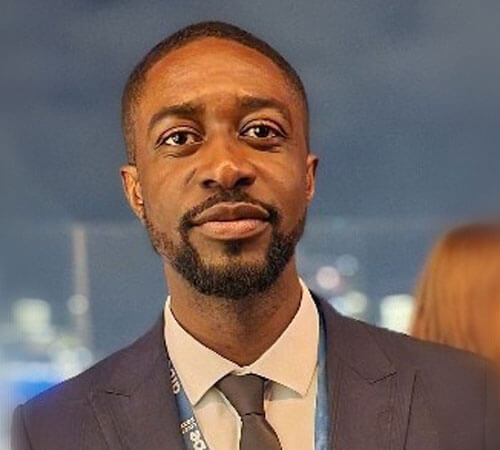
Melissa Sabella, Founder and CEO, The Honeycomb Works
Melissa Sabella is the founder and CEO of The Honeycomb Works, an organisation whose mission is for everyone at work to feel like they belong and are free to invent. They use research, evidence, data, and technology to advance diversity, equity and inclusion in organisations. Prior to launching The Honeycomb Works, Melissa led innovation teams in global organisations to deliver innovative, market-leading new products. She has successfully led multiple transformation projects and is regularly invited to speak on human-centred design, learning, and inclusivity. Melissa is an Italian-American living in London trying to follow baseball and be a better global citizen.
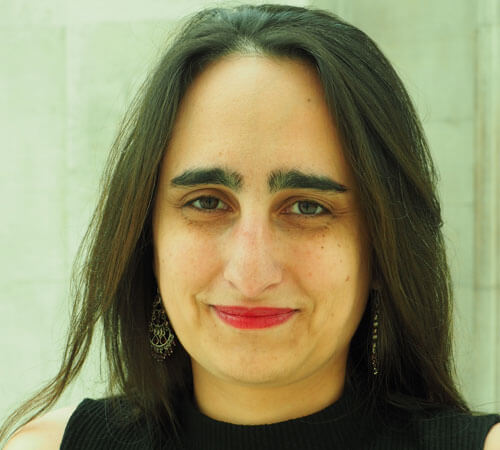
Joanna Whiteman, Head of Diversity and Inclusion, Royal Academy of Engineering
Joanna leads the Academy’s work to accelerate diversity and inclusion throughout engineering. Joanna’s team works with engineering companies, academic institutions and professional bodies, providing evidence-based programming and rigorous research to support them and enable their good practices to reach the wider profession.
Joanna began her career as an employment lawyer, advising companies across the UK as they sought to comply with the Equality Act 2010. She then moved into the charitable sector and, as Head of Litigation and then Co-Director at the Equal Rights Trust, she supported global partners to use the law to advance equality.
Joanna has advised, trained and guided hundreds of organisations as they embed inclusive practices in their own work and continue their work advocating on behalf of underrepresented communities. She has also worked closely with organisations on developing equality policies and advocating for relevant legal reform at the national and international level.
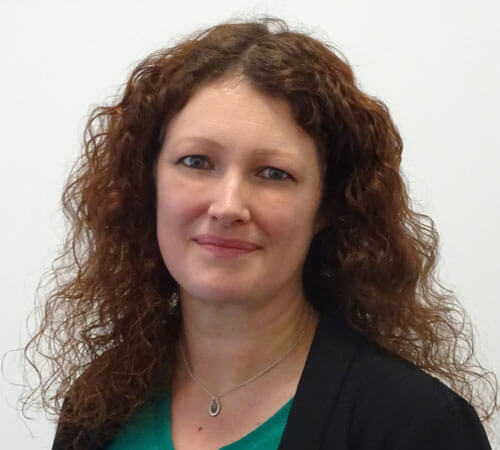
Helen Townend, Head of Inclusion and Social Value at Amey Consulting.
Helen has 30 years of experience in engineering geology, working on projects in the UK, Europe, Asia, and Australia. A Chartered Geologist since 1999, Helen has focused her career in transport, with operational experience in a wide range of infrastructure renewal projects. Since 2017, Helen has worked to embed the culture of inclusion across all aspects of Amey Consulting’s business. She champions inclusion and inclusive design, and builds workplaces where all staff can thrive and teams that deliver a more inclusive and accessible service, adding value for the whole community in a sustainable manner.
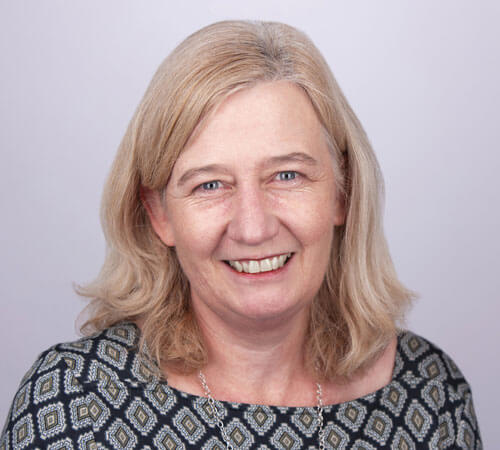
Session 3 - Planet: Inclusive engineering to save our planet
Panel discussion and Q&A
Panel Chair:
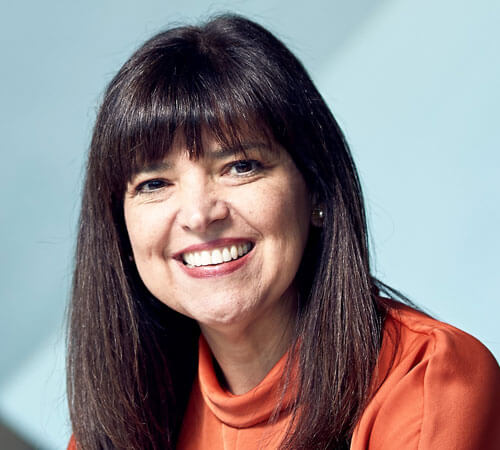
Aleida Rios FREng FEI ChEng, Senior Vice-President, bp, D&I Committee Chair, Royal Academy of Engineering
Aleida Rios FREng is Senior Vice President Engineering at bp and leads the center of technical discipline engineering expertise which houses the most senior engineers and engineering technical authorities in bp. She is accountable for enabling bp’s energy transition through engineering to deliver on resilient hydrocarbons and the scale up of gas and low carbon energy in the areas of CCUS, Hydrogen, Wind, Bio, and Electrification. Aleida chairs the heads of engineering forum which represents the Company’s 2,500+ practicing discipline engineers. Prior to her current role, Aleida served as Vice President of Operations for the Gulf of Mexico and Vice President for bp’s Lower 48 business.
Panellists
Emily Nott, Head of Diversity and Inclusion, Innovate UK
Dr Emily Nott leads Innovate UK’s work to promote diversity and inclusion in business innovation. This involves initiating targeted interventions to address underrepresentation and identifying opportunities to make Innovate UK’s support for business more visible and accessible. She has introduced high-profile campaigns and programmes for women in innovation and young innovators. She is currently working on a new, more ambitious initiative to realise the full potential of diverse talent for innovation in the UK. Prior to Innovate UK, Emily worked in a variety of roles in organisations across the UK research and innovation landscape (including research councils and government departments). She has several years of experience supporting business–university collaboration and knowledge transfer. Emily also has a PhD in chemistry.
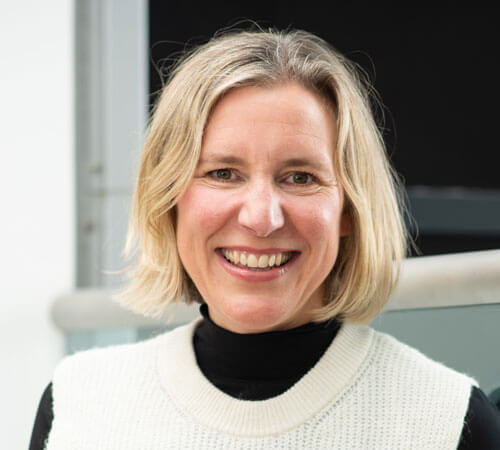
Tim Walder, Senior Director, Arcadis
Tim is a Senior Director with Arcadis and is the company’s UK Aviation Sector Leader. He has over 40 years’ experience in the construction industry. His role includes leading a multidisciplinary team of design and engineering and consultancy services professionals, undertaking multimillion pound projects for aviation clients. Tim is on the Board of the British Aviation Group (BAG) as Deputy Chair and sits on its equality, diversity, inclusion and belonging (EDI&B) Advisory Group. He is the Executive Sponsor for allyship in Arcadis’ mobility sector. Time is also a qualified life coach, enterprise careers advisor and sits on the Coast to Capital LEP Careers Hub Steering Group.
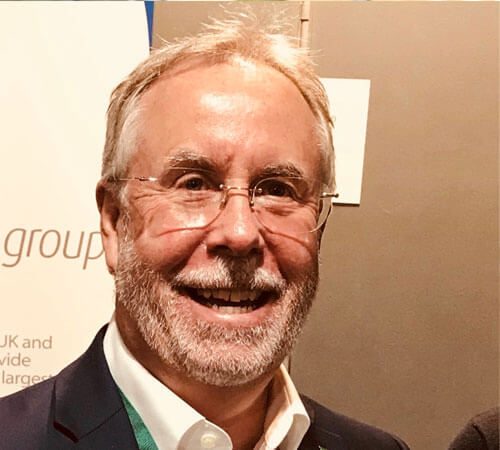
Ed Warner, CEO, Motionspot
Ed Warner is Co-Founder and CEO of inclusive design business Motionspot. He founded the organisation in 2012 after his friend and Co-Founder, James Taylor, was paralysed in a diving accident and left underwhelmed by the clinical design and poor quality of adaptations in his home. Ed has since built Motionspot into a Royal Institute of British Architects award-winning industry leader in inclusive design.
The organisation provides inclusive design consultancy and accessible products to workplaces, the hospitality industry, retirement and later developments, care and housing providers, and leisure and retail venues across the world. Ed was also the Government Sector Champion for the design of accessible spaces and products for a three-year term between 2019 and 2022. He has also spoken on topics related to the built environment, and how inclusive design supports the S for social in ESG and is a vital component of EDI strategies.
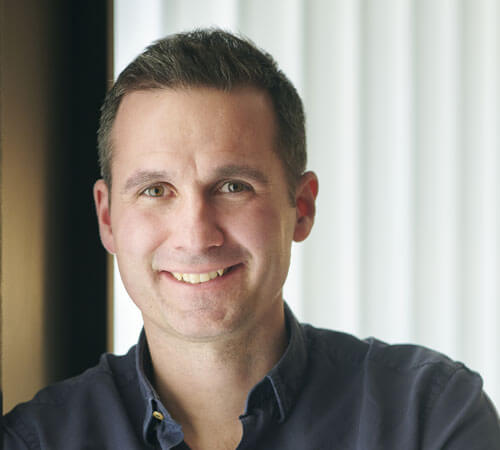
Dr Shini Somara EngD, BEng(Hons), Technology and Innovation broadcaster, BBC
Dr Shini Somara, originally a mechanical engineer and fluid dynamicist, is an award-winning science, technology and innovation broadcaster. To date, she has authored seven STEM books for young people, most recently including the illustrated, Imperial College-supported ‘Engineers Making a Difference’, aimed at 12–15-year-olds considering their future careers.
Shini translates technical information into entertaining media for the BBC, Channel 4, PBS Digital, UKTV, Sky, Discovery, The Science Channel and Al Jazeera. On YouTube, she hosts two free educational series: Crash Course Physics and Crash Course Engineering, which have received over 58 million views altogether.
Through her broadcasting work and podcast, mentorship for PhD and masters students and experience in engineering, Shini is determined to help boost innovation by championing equality, diversity and inclusion in STEM. Her new book, Engineers Making a Difference, celebrates and represents equality, diversity, inclusion and talent involving 46 engineers across many genres of engineering in the UK. It will be published on 2 March 2023.

Exhibition
The Engineering Inclusive Cultures Exhibition showcases engineering innovators who have begun to envision what is possible when an inclusive-culture mindset meets creativity to make the world a more accessible place that works for everyone.
Each organisation has led design of their products and services with inclusivity in mind. This may be through bringing people together, breaking down barriers, providing equal access to necessities or solving challenges faced by individuals or groups. We hope this inspires you to explore how you can bring an inclusive mindset to your engineering outputs.
Exhibitors and related content
bp
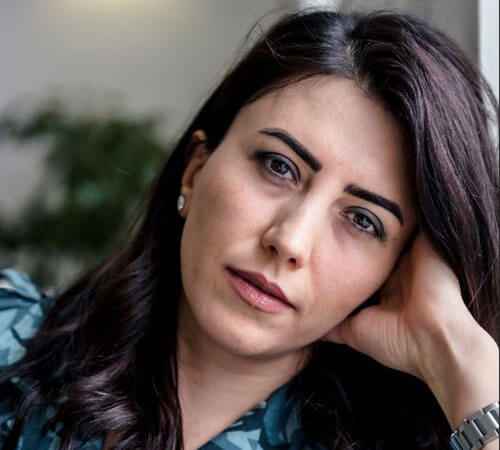
Gunay Shamilova
Gunay Shamilova is a chemist by background and joined bp in 2013 as a trainee. She is currently a corrosion and materials engineer in the central team supporting all upstream and refinery facilities, as well as net zero projects with corrosion and erosion related challenges. Before 2021, Gunay was a dedicated corrosion and materials engineer for an offshore platform in Azerbaijan. She has written several technical documents, guidance notes, and procedures for sites and projects and is also a Queen Elizabeth Prize for Engineering (QEPrize) Ambassador. Gunay is interested in increasing awareness about engineering and especially wants to be a role model for girls who like technical subjects but don’t see engineering as a career option because of biased opinions about engineering, such as it is physical work or a man’s job.
What does your innovation do?
We are creating a centralised corrosion monitoring tool that will collate corrosion monitoring information from all regions in one source. That creates a holistic picture of corrosion management performance globally, and also allows users to drill down region by region to understand the details in depth.
What problem(s) does your innovation solve?
When it comes to corrosion assessment, it could take longer to dig out different data sources and set up manual calculations and trends. This digital monitoring tool allows automatic data collection, runs calculations, sets up multiple trends, and can respond to any excursions on time.
How have you incorporated inclusion within the design of your innovation?
Inclusion underpins the whole project. We want all regions across the company to use the same tool for their corrosion assessments. We want to bring everybody onto the same page and help regions with their corrosion monitoring programmes. We also consider differences in regions’ facilities as well, and based on those we do small adjustments to make the tool suitable for regions’ specific needs.
Innovation name: Corrosion monitoring data digitalisation

Innovation flow diagram of corrosion monetary data digitalisation
Kerckhoffs Ltd
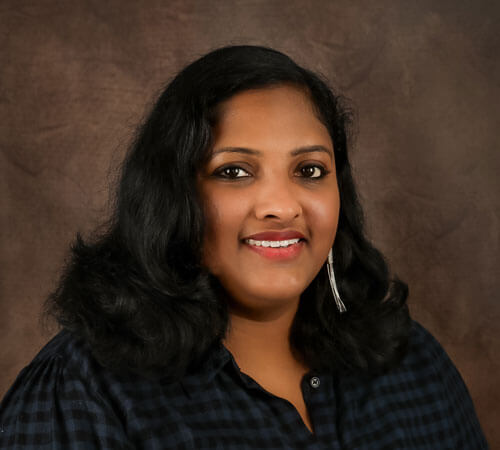
Vijayalakshmi Subramani
CEO of Thendral International Ltd and Director of Kerckhoffs Ltd.
Vijayalakshmi Subramani (VJ) has worked in a range of industries for 15 years, in both India and the UK. The companies both focus on developing state-of-the-art virtual-reality-based software applications. Before this, VJ managed a school meals unit for Sunderland City Council for eight years and spent five years as a trainer for a multinational restaurant chain. She has experience in delivering health and safety advice to businesses. VJ was named the University of Sunderland’s Student of the year in 2019, and was shortlisted for an Inspiring Female award in both 2020 and 2021 by the North East England Chamber of Commerce Business Awards. VJ is also actively involved in community work, including as an enterprise advisor and a member of the Royal Voluntary Service.
What does your innovation do?
Our innovation TeenyWeenyVR is a virtual reality (VR)-based inclusive edutainment solution for children with special educational needs and disabilities (SEND). The TeenyWeenyVR team is also working on creating metaverses for neuro-typical children and teachers to help them understand the world of neurodiverse children.
What problem(s) does your innovation solve?
Our aim is to bring the entertainment and fun-based educational contents in VR to SEND children. This can help them with visit preparations and in dealing with their loneliness, anxiety levels and phobias. Our children’s entertainers and fun-based tourist guide partners come from various backgrounds, and most of them don't have second job. By introducing emerging technology and creating an avenue for a parallel revenue, in we are preparing them to embrace an emerging-technology-based economy.
How have you incorporated inclusion within the design of your innovation?
TeenyWeenyVR is mainly focused on SEND children. In the last year, we have:
- Demonstrated TeenyWeenyVR to more than 200 children with SEND in different age groups and with different spectrum levels and disability conditions.
- Introduced it to more than 50 mainstream school children, over 25 teachers and more than 50 parents.
- Demonstrated our Northeast tourism destinations videos in VR to older people in our local community.
- Worked with academic researchers from universities in the UK and abroad, as well as educational psychologists, occupational therapists and other professionals who work with SEND children
- Provided opportunities for work placements for teenagers with autism spectrum disorder, mental health issues such as bipolar disorder, and learning disabilities.
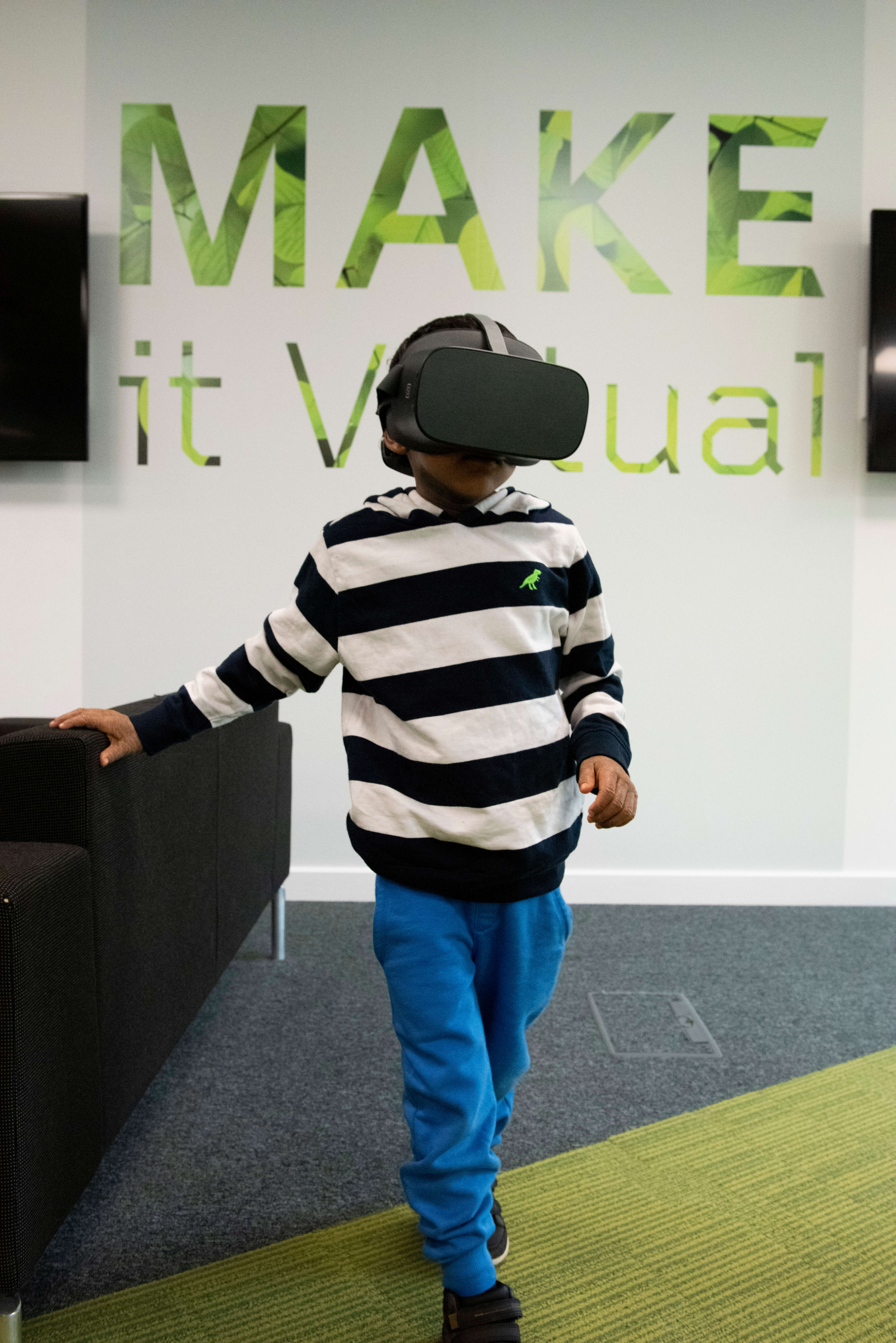
Our development version prompted lots of excitement among the children, teachers and parents.
Our team is inclusive and diverse. Our technical lead is a person with disabilities (paraplegic) who uses a wheelchair. We also provide opportunities to people who are in financially disadvantaged positions.
KwickScreen

Michael Korn
After studying manufacturing engineering, Michael Korn worked in an engineering business in South London, but wanted to start his own business. He received a scholarship from the Royal Commission of 1851 to study industrial design engineering at Imperial College London and the Royal College of Art where he invented the Kwickscreen product as his final project in 2007.
The product aims to to prevent the spread of hospital-acquired infections with portable isolation screens designed for use in NHS hospitals. It uses a novel composite material technology to flex to any size and retract into a neat tidy space. The business has grown consistently and now has a large state-of-the-art production, printing, prototyping, and R&D facility in Lewisham. The company supported the NHS throughout the COVID-19 pandemic. It also supplies globally and has recently secured a distribution partner in the US.
What does your innovation do?
Our patient privacy partitions are the only sustainable, hygienic and flexible alternative to hospital curtains. KwickScreens create safe spaces for patients to recover in.
What problem(s) does your innovation solve?
Hospital curtain systems limit flexible efficient use of space. Curtains harbour germs, look ugly, are ineffective at providing privacy, and being disposable they contribute to plastic waste preventing the NHS from achieving its net zero targets. KwickScreen’s systems are the hygienic flexible sustainable alternative to the dreaded curtains between hospital beds.
How have you incorporated inclusion within the design of your innovation?
To develop breakthrough products in a short period of time we rely on having diversity of thought in our R&D team. We pride ourselves on being neuro-inclusive and have a work environment and culture that accommodates different styles of working and which promotes output of good/novel ideas rather than following a process.

Examples of KwickScreen’s products replacing hospital curtain systems
Laing O'Rourke

Ada Nwadigo
Ada Nwadigo is a civil engineer with experience delivering residential, utilities and major infrastructure projects. She is currently working on High Speed 2 with Laing O’Rourke Expanded at Old Oak Common Station. Ada is interested in the infrastructure aspect of civil engineering and the need for sustainable management strategies and designs.
She is an active Queen Elizabeth Prize for Engineering ambassador. She is passionate about promoting diversity within the built environment and infrastructure, by raising awareness and sharing her career story with students and inspiring the next generation of engineers.
What does your innovation do?
We deliver state-of-the-art infrastructure and buildings projects for clients, based on an operating model that harnesses new technologies to maximise the use of pioneering modern construction methods.
What problem(s) does your innovation solve?
Through implementing innovative methods of construction and digital engineering we can pursue our goals of:
- 70% of the constructed asset manufactured off site,
- 60% improvement in productivity
- 30% improvement in delivery schedule.
This also helps us work to achieve our net zero ambitions, eliminate accidents, and improve gender and cultural balance on our projects.
How have you incorporated inclusion within the design of your innovation?
Low and zero carbon products are manufactured off site at our Centre of Excellence for Modern Construction (CEMC), which is the most advanced concrete products manufacturing facility in Europe. These play a vital role in delivering our net zero ambitions by producing lower carbon components for more of our projects. By implementing digital engineering on our projects, we build every project twice – virtually and physically. This allows us to de-risk the design and construction phases of our projects. Implementing modern methods of construction and digital engineering make our projects safer and more accessible to people from all genders, races and backgrounds. As well as boosting productivity, it is the means to creating a profession that is digitally skilled, more diverse and, as a result, more innovative.
Metacarpal
Fergal Mackie
Fergal Mackie co-founded Metacarpal after graduating in product design engineering from the University of Strathclyde. The idea behind Metacarpal is simple. Despite 30 years of focused development into robotic hands, the mechanical hook, a device that has not changed in over 100 years, remains the most popular and functional prosthetic hand today.
Metacarpal looks to upgrade mechanical prosthetics, giving greater functionality through novel mechanisms, and make them into something that users are proud to wear. The way it looks and feels is a huge part of this, as although there are many people who are happy and confident wearing a hook device, for many this is a complete non-starter. Fergal founded Metacarpal in 2020 at the start of the pandemic. The lack of available engineering jobs and being placed on furlough gave him the push he needed to start his own company.
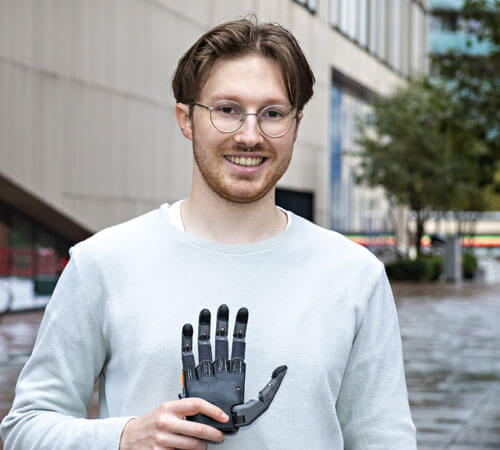
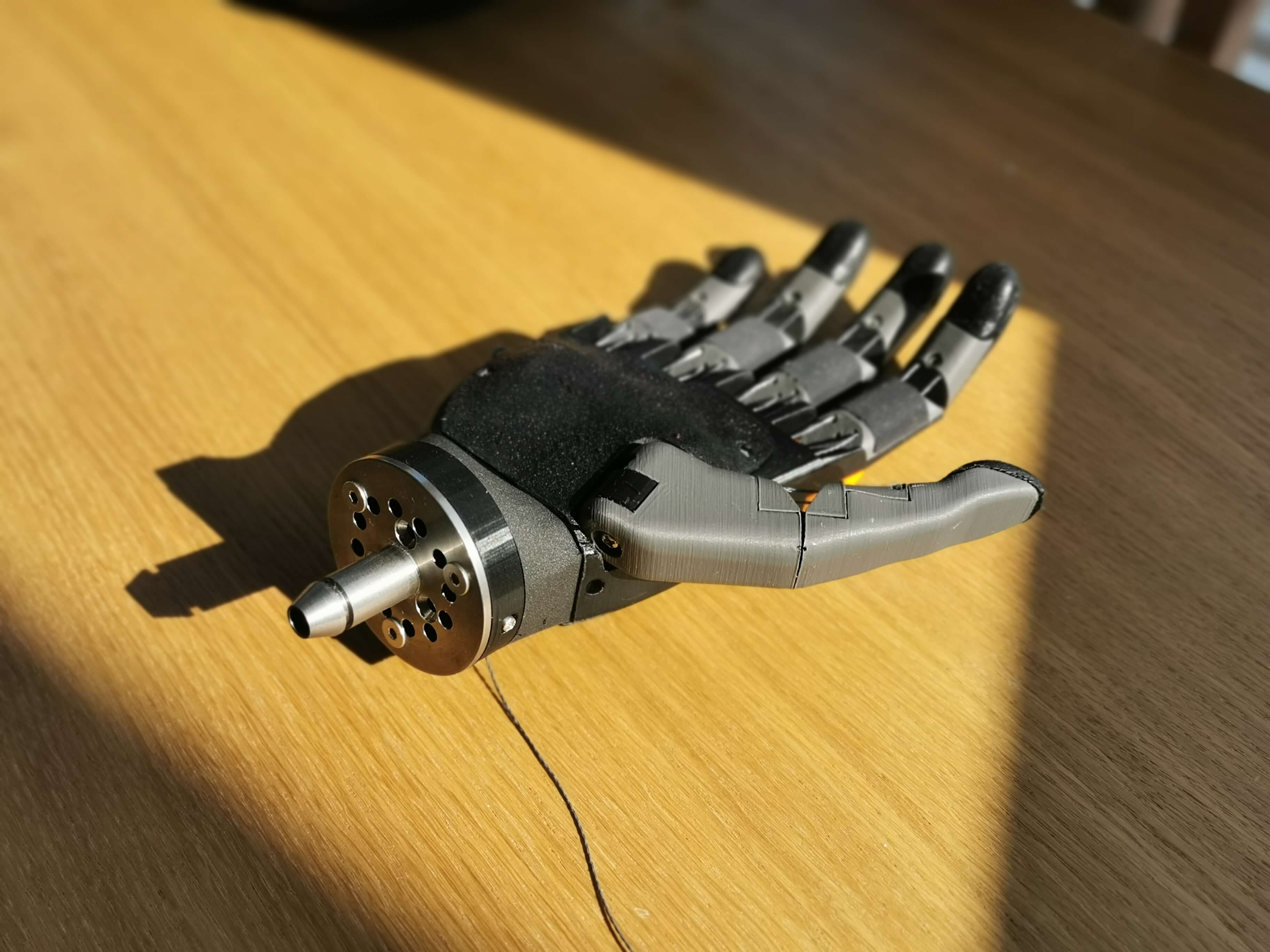
What does your innovation do?
Hand prosthetics manufacturers have had tunnel-vision when creating devices using electronic control systems. Metacarpal takes a new approach, innovating prosthetics with individual finger control, variable grips and wrist positions. Crucially, these are entirely driven by body movements. This is to increase function while empowering the user’s confidence in themselves.
What problem(s) does your innovation solve?
Less than half of people with upper-limb differences actually use prosthetics because current devices require them to make major compromises to their function or self-perception. Metacarpal will empower amputees both physically through novel function and psychologically with a device they can be proud to wear – increasing prosthetics adoption.
How have you incorporated inclusion within the design of your innovation?
Prosthetics are developed to tackle disabilities making inclusion at the very heart of Metacarpal. Our value proposition was built by understanding the wide array of this community’s needs. The human-built environment has been designed for two-handed people, and while we cannot replicate a hand, we are creating tools that enable independent living. The social side of prosthetics is also just as important. Rather than current devices like hooks, which attract pity, natural-appearing hands, which invite inquisitive stares and can damage confidence, we make devices that proudly show their artificial side – empowering user confidence. We also are getting involved with the community, creating articles educating about prosthetics technology and around using inclusive terms like people with limb difference, rather than amputees. This includes those who are born without hands and arms and often feel excluded. This is knowledge we know from engaging with our users.

3D modelling for hand prosthetic
Movetru Ltd
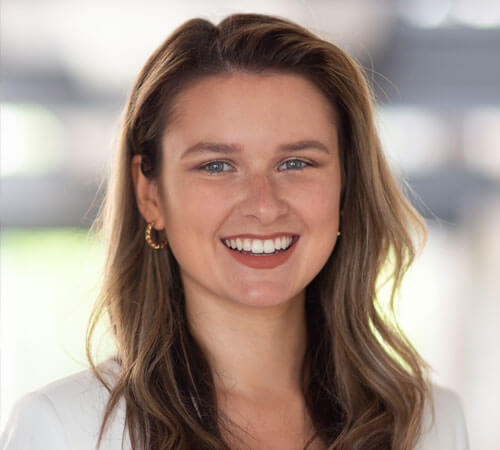
Naomi McGregor
Founder and CEO/CTO of Movetru Ltd
Movetru Ltd a multi-award-winning startup. She has a First Class master’s in product design engineering from Queen's University Belfast and a host of international travel scholarships, including training from the prestigious CDIO programme at Stanford University. Her expertise in product development, autonomous vehicles, production, and manufacturing processes, as well as her experience in sales, has been recognised by organisations such as the Royal Academy of Engineering, Institution of Mechanical Engineers and Innovate UK, which have all awarded her for her work.
Naomi has Lean Green Belt Team Leader certification from Cardiff University. She is also a STEM ambassador, dedicating hundreds of hours to voluntary work, and has published a TEDx Talk.
What does your innovation do?
At Movetru, our mission is to eradicate preventable injuries through wearable technology. Alongside our machine learning models, Movetru aims to accelerate recovery journeys and can even alert of an injury before it happens.
What problem(s) does your innovation solve?
Our initial injury focus is the anterior cruciate ligament (ACL) within the knee. Faced by over two million people globally every year, these are the most expensive sports injuries, requiring surgery and rehabilitation. And, terrifyingly, women are up to eight times more likely to suffer ACL injuries.
How have you incorporated inclusion within the design of your innovation?
As young women are up to eight times more likely to suffer an ACL injury than men, effective technology to meet their needs is essential. To ensure these needs are met, we have been trialling Movetru with women athletes since conception. Movetru consists of a multidisciplinary team from award-winning backgrounds that strives for fearless, inclusive, innovation.
My Wings in partnership with 2eMPower
Michael Korn
After studying manufacturing engineering, Michael Korn worked in an engineering business in South London, but wanted to start his own business. He received a scholarship from the Royal Commission of 1851 to study industrial design engineering at Imperial College London and the Royal College of Art where he invented the Kwickscreen product as his final project in 2007.
For the My Wings initiative he is partnering with Professor Sara Rankin.

Michael Korn
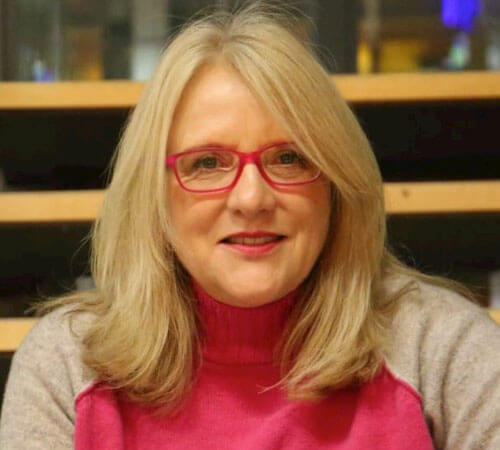
Professor Sara Rankin
Sara Rankin is Professor of leukocyte and stem cell biology at Imperial College London. She is an advocate for neurodivergent people in STEM. She is showcasing 2eMPower, which develops and delivers creative STEM workshops for young neurodivergent students aged 14 to 17.
The 2eMPower Cybersecurity Workshop for autistic students was developed in collaboration with The National Museum of Computing and Angel Exit Theatre. The project received funding from the Royal Academy of Engineering’s Ingenious programme.
The My Wings platform is a recruitment tool that matches neurodivergent people with neuro-inclusive workplaces, enabling safe disclosure of conditions and workplace accommodations.
It showcases inclusive workplaces and jobs authentically, creating a user-designed route into recruitment for autistic and dyslexic people, as well as those with ADHD, aiming to reduce friction and discomfort in the recruitment process and embracing differences.
Current recruitment processes disadvantage or even exclude many of the best people for the jobs needed in the future workforce. Neurodivergent people think differently and when supported by technology and put into the right environments they can make contributions many times greater than their neurotypical co-workers.
The My Wings platform is in its early stages. The team is keen to connect with neurodivergent job seekers and diversity and inclusion managers with a neurodivergent hiring strategy.
What does your innovation do?
Helps neurodivergent (ND) people to find fulfilling work in STEM in companies that suit their needs and where they will be supported.
What problem(s) does your innovation solve?
Current recruitment processes exclude many ND people. My Wings is a safe place for neurodivergents to authentically present their best self and get matched with jobs in ND-friendly companies. NDinSTEM is showcasing the variety of roles where ND people can flourish working in STEM.
How have you incorporated inclusion within the design of your innovation?
We are ND, we have designed our products with other ND people and they are for ND people so that the rest of society can benefit from what happens when ND people are given the chance to have fulfilling careers and do their best work.
Nyfasi
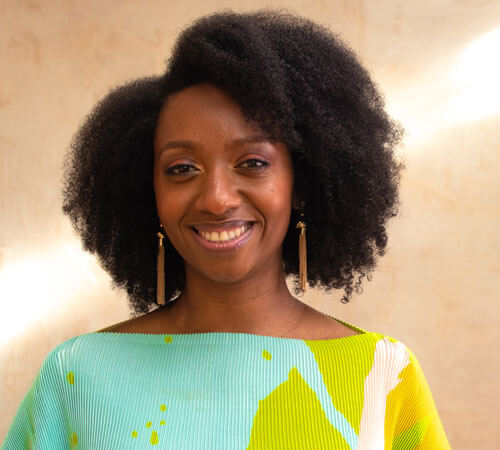
Dr Youmna Mouhamad
Founder and CEO of Nyfasi.
Dr Mouhamad has a bachelor's degree in chemistry and physics, a master’s in physics and a PhD in polymer physics. She has six years of experience as a research engineer in functional printing and coating, where she contributed to two patents. She invented the Deluxe Detangler, a comb with a patented mechanism that coats hair with conditioner while detangling, to make the whole process more manageable and pain-free. In 2020 she received a Royal Academy of Engineering Enterprise Fellowship to exploit her technology. She won a Chwarae Teg Womenspire STEM award in 2020 , was listed among the top 50 women in engineering in 2022 and in 2021 was recognised by the French Ministry as a Talents from French Overseas Department. She has featured across media, including BBC Radio 4’s Woman's Hour, and has spoken at both the Welsh and the French parliaments.
What does your innovation do?
The Deluxe Detangler comprises a cover, a comb with a reservoir, and a distribution mechanism in the form of a roller. It applies and distributes haircare products while detangling. Its benefits are fast application, even distribution and easy detangling. There is currently no product in the market that offers the same benefits.
What problem(s) does your innovation solve?
It is not widely known, but applying haircare products on afro-textured hair is painful and tedious. It requires the hair to be separated into sections before the product can be applied and then combed through, which detangles the hair and evenly distributes the product. On average, this takes women 20 minutes, and some can take up to 50 minutes. This process is tedious, painful and time-consuming. The complex hair care regimen, the stigma around afro-textured hair and the lack of representation break Black women and girls’ hair confidence.

Peach Deluxe detangler: model

Deluxe detangler: explanatory schema
How have you incorporated inclusion within the design of your innovation?
Nyfasi practices inclusion by serving a demographic that mainstream companies have ignored. Within the design, we chose a wide-tooth comb as they are more suited for afro-textured hair; they limit hair breakage and pain while detangling. The detangler’s ergonomic design and sturdiness provide the stronghold necessary to detangle afro-textured hair. However, the Deluxe Detangler also works perfectly for curly hair. As such, we practice inclusivity by referring to our customer segment as ‘individuals with textured hair’, which includes ‘individuals with curly, coily and kinky hair’.
The Honeycomb Works

Melissa Sabella
Founder and CEO
The Honeycomb Works helps organisations become more inclusive and innovative. It aims to transform teams habit by habit, person by person, and at scale so that individuals can thrive and organisations can succeed.
Founder and CEO Melissa Sabella has successfully led multiple transformation projects. She is regularly invited to speak on human-centred design, learning and inclusivity.
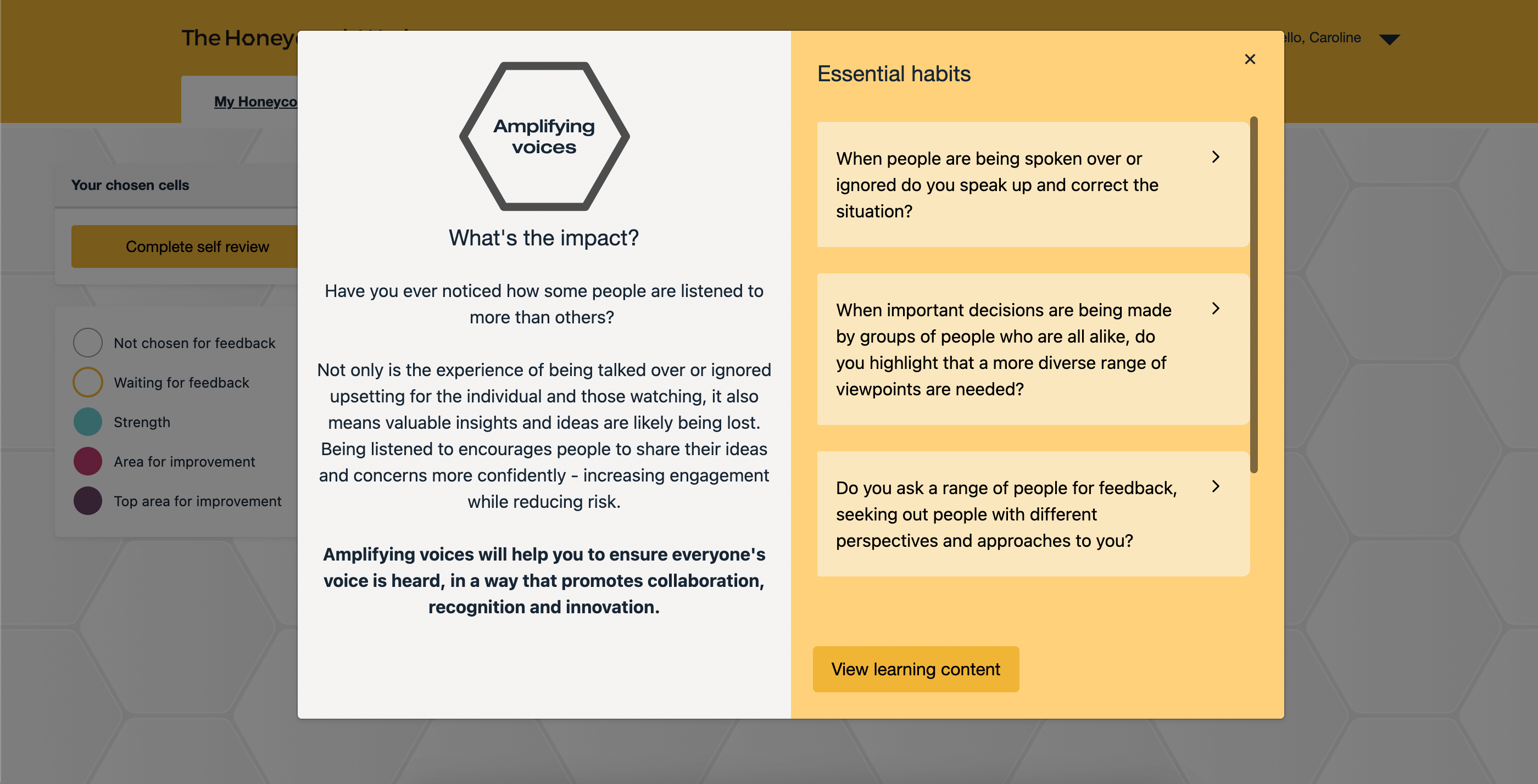
What does your innovation do?
We support organisations to build inclusive and innovative cultures where everyone feels like they belong and are free to invent. Our platform helps everyone on the team develop the specific behaviours that improve equality, diversity and inclusion (EDI) and provides reference material tailored for every stage in the journey, from startup to scaleup.
What problem(s) does your innovation solve?
In the resource-strapped world of startups every minute and every penny counts, meaning that the principles of EDI are often overlooked and deprioritised. This can limit the overall success of your startup and place preventable barriers in the way of individuals from underrepresented backgrounds joining your business.
How have you incorporated inclusion within the design of your innovation?
We’ve identified the most critical behaviours in creating an inclusive culture that lead to diverse teams of people who feel safe to speak up, share ideas, flag risks, and challenge each other respectfully. We’re developing policy and process templates that prioritise and embed EDI in startups and scaleups for every stage of their journey. We’re developing reference material to answer the most common questions people in startups and scaleups have about EDI and that address the most common mistakes that could cause harm.

Example of the Honeycomb Works feedback system

Example of work with the Royal Academy of Engineering
The washing machine project
Navjot Sawhney
Founder, The Washing Machine Project
The Washing Machine Project aims to bring together innovation, research and development to solve some of the world’s most pressing humanitarian and development challenges. Navjot Sawhney founded The Washing Machine Project in 2018. He worked in vacuum cleaner manufacturing but became disillusioned so went to India with Engineers Without Borders to work on fuel-efficient cookstoves. Here, he met a woman named Divya who faced the backbreaking pain of handwashing clothes every day. Nav promised Divya a washing machine and returned to the UK to create The Washing Machine Project. The Divya Washing Machine is the only manual washing machine developed specifically for the humanitarian context. It is affordable, portable and accessible for everyone, everywhere.
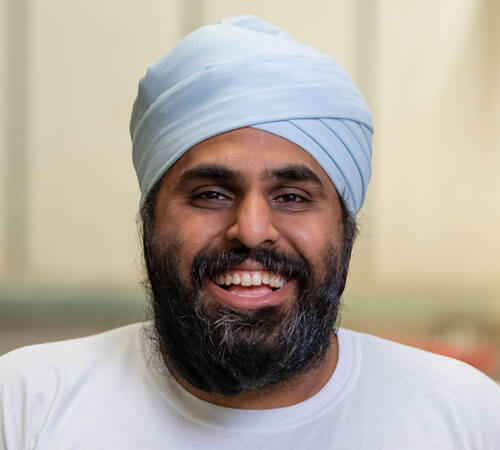

The Divya manual hand-cranked washing machine
What does your innovation do?
The Divya is a manual hand-cranked washing machine designed to alleviate the backbreaking pain of handwashing clothes. It requires zero electricity, saving 50% of water and 75% of time spent during handwashing.
What problem(s) does your innovation solve?
Existing washing machines are only accessible to those with access to clean water, reliable electricity and sufficient funds. As such, 70% of the world's population hand wash clothes. Worse, handwashing is a disproportionately placed burden on women and girls who can spend up to 20 hours a week on this painful task. The Divya washing machine provides a pain-free, accessible solution to the backbreaking problem of hand washing.
How have you incorporated inclusion within the design of your innovation?
The design’s core principles make it accessible to many who have previously been unable to use washing machines. The manual operation of the machine enables it to be used irrespective of access to electricity, a problem faced by 3.5 billion people in the world who lack access to reliable electricity. It can utilise any water source, making it suitable for those who gather water from bore holes or natural water sources. All efforts have been made to minimise the cost of the machine to make it financially accessible. All instructions are given diagrammatically to enable access to those who have limited reading skills. The detailed design has been done in conjunction with research from those with physical limitations, including focus groups at Te Toa Matoa centre for people with disabilities in Kiribati. The washing process can be carried out using only one hand. The machine can be operated sitting or standing. The force required to wash is minimised at all points.
Trimmed Innovations
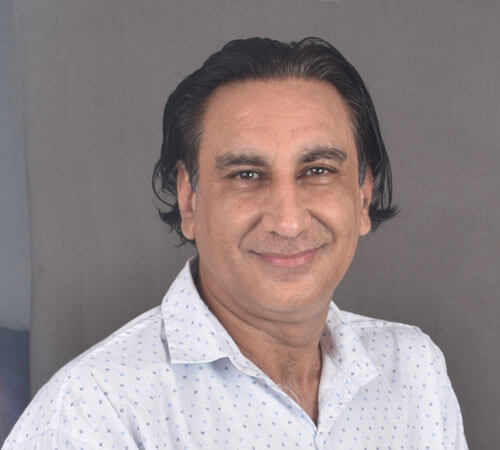
Dr Saurabh Kwatra Resolve
Owner, Trimmed Innovations
Dr Saurabh Kwatra Resolve is an inventive-step amplifier and experiential STEM trainer. He holds a master’s in innovative design technology from Ukraine and a DSc in innovation management. He owns and runs Trimmed Innovations, which provides free education resources that focus on low-cost, lean engineering products and processes.
His projects, Engineering by Design and Crowd Adaptive Mask, are included in the MIT Innovation Initiative. The latter was also selected and presented as a poster during NATO Military Medicine Centre of Excellence’s Force Health Protection Event in 2021. He gave a presentation on a sound sleep surveillance system as a speaker at the same event in Munich in 2022.
Saurabh is also a member of the Queen Elizabeth Prize for Engineering’s Ambassadors Network Council.
What does your innovation do?
I make hands-on engineering accessible to many, by teaching people the processes to transform an idea and a design into a tangible product, via live workshops. These are mostly low-cost healthcare products, such as a razor that results in fewer cuts and less irritation and an adaptive mask that only functions in crowds.
What problem(s) does your innovation solve?
I believe that small things make a big difference. So, in my work I avoid trade-offs and align the designs to Industry 4.0. For instance, the no-cut razor uses both light and heat emitted by LEDs to view the skin closely and heat natural, transparent shaving oil. The crowd-adaptive mask behaves as a non-mask when the user is alone and only functions when mandatory in a crowd.
How have you incorporated inclusion within the design of your innovation?
I consider myself as a humanitarian technologist: unless something can be made there is no point designing it and unless it can be shared there is no point making it. My solutions consider three things: the product, the process (for education) and the community. I aim to give as many people as possible access to low-cost product solutions that can be developed in low-resource settings.
For instance, a self-focusing microscope, which can be made for under 50 cents, has been developed as a product and its process used in a STEM lesson by Nigerian students and has been presented at Techfest, at the Indian Institute of Technology (IIT) Bombay, Mumbai. The crowd-adaptive mask was presented as poster during NATO Military Medicine Centre of Excellence’s Force Health Protection (FHP) Event in 2021.
The no-cut razor was also shared among NATO communities. It is especially helpful to soldiers in low-resource environments who have tight duty schedules. A solar-wind hybrid micro generator was installed at Christ Church Kasauli (Himalayas) to provide alternate lighting inside and outside as a sensor-based security feature. A similar machine was installed on the roof of Xavier Institute of Engineering, St Xavier's Group, Mumbai, to promote renewable power. More recently, I also gave a presentation on a sound sleep surveillance system during a NATO FHP event in 2022 in Munich.
University of Southampton
Dr Alex Dickinson
Associate Professor,University of Southampton.
Dr Dickinson has 18 years’ experience in medical device research and development. He carries out multidisciplinary work with clinicians, health scientists and industry, works on applied research for patient and clinician benefit, and co-founded the PeoplePoweredProsthetics research group. He held an Royal Academy of Engineering Research Fellowship (2015 to 2020) and has led projects including a EPSRC/NIHR Global Challenges Research Fund project between partners in UK and Cambodia. He is a Co-Founder of Radii Devices Ltd., which is developing data-centric design and analysis methods for prosthetic sockets. He is a member of the Institution of Mechanical Engineers and a member of its Biomedical Engineering Division board; Associate Editor of the Institute of Physics and Engineering in Medicine journal Medical Engineering & Physics; and a STEM Ambassador.
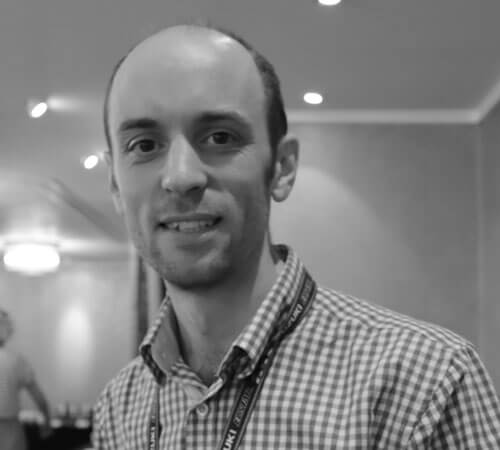
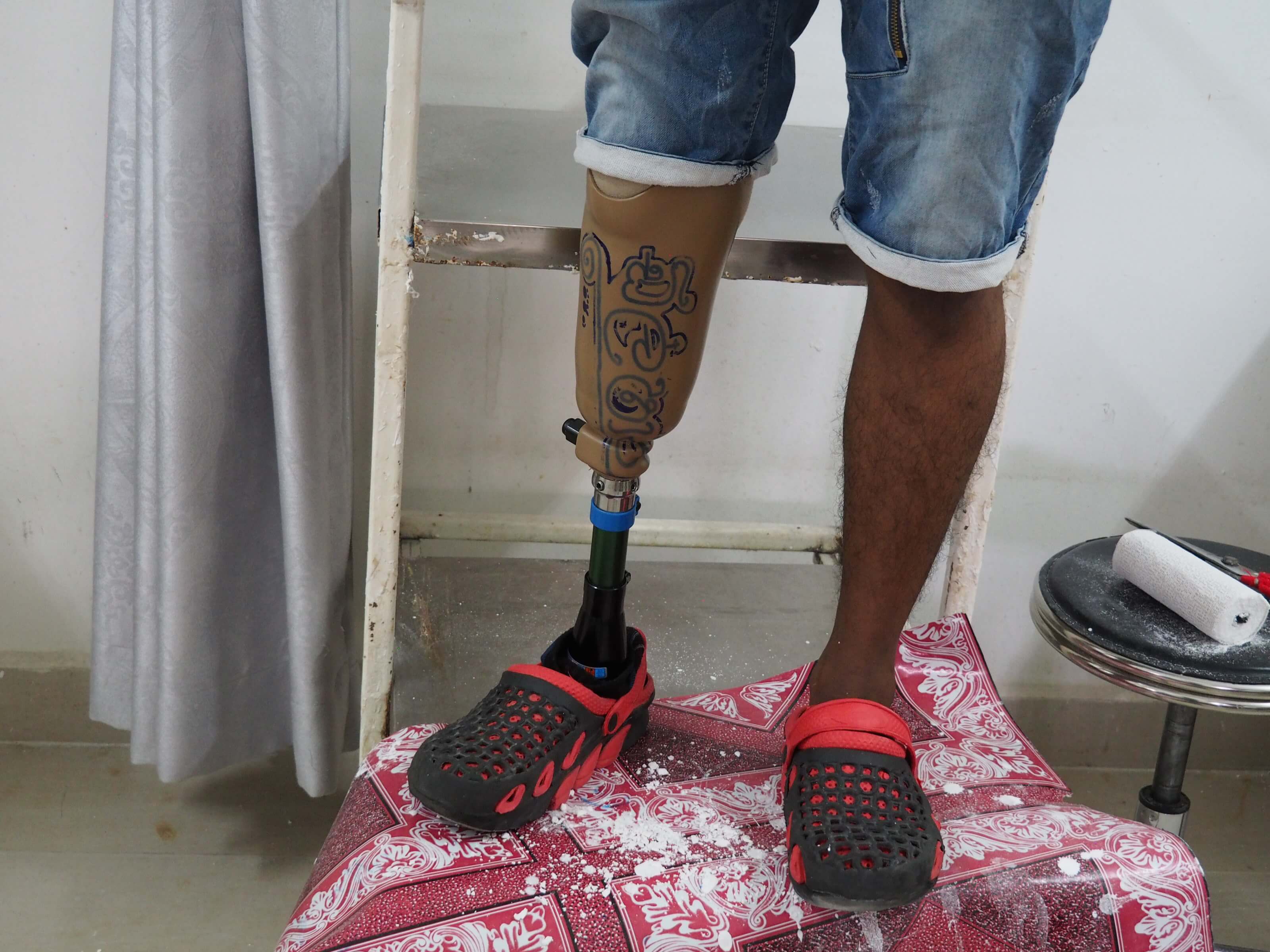
What does your innovation do?
PeoplePoweredProsthetics is a global group of researchers, clinicians, prosthetic wearers, academics, and engineers who are committed to using research to improve the lives, limbs and rehabilitation of anyone effected by limb loss. We work across high- and low- income settings, with particular experience in the UK, Cambodia, Jordan, Uganda, and Nepal.
We believe strongly that prosthetics and orthotics (P&O) research should be multidisciplinary, with contributors from the healthcare profession, service user/patient groups and policymakers, as well as academics and technicians.
We have assembled a team of people from engineering, health sciences, healthcare psychology, computer science, P&O education and service delivery, and business modelling, to ensure that these stakeholders all have their voices heard.
What problem(s) does your innovation solve?
We tackle a range of problems around how prosthetic and orthotic devices are designed, how health services are established to deliver them to users, and how to assess the functional, social and economic value that they deliver. Aligning with this conference’s agenda of People, Practice and Planet, we will share examples of our research into a range of data technologies, incorporating artificial intelligence (AI) into the design of bespoke P&O components.
How have you incorporated inclusion within the design of your innovation?
Diversity and inclusion are integrated throughout our activities. We ensure that P&O technology developments are defined by the people who will use them, instead of being pushed by engineers. We advocate a vision for future P&O developments where expert humans and machines work side by side. We believe this will lead to much more inclusive design than could be achieved by AI without the human touch. There is a risk of data bias in prosthetic limb design, with a disproportionately low number of women with limb absence. These data-based design methods give an opportunity to improve inclusion in design.
Toucan

Antonia Hellman
Antonia Hellman is Co-Founder and CEO of Toucan. She is a recent graduate of Stanford University, with bachelor’s degrees in political science and economics, and is pursuing a master’s degree in management science and engineering.
Prior to Toucan, her career experience has been in data science and political campaigning. She was Co-Founder and Co-Director of StanfordVotes, Stanford’s first and nationally recognised centralised voter registration and mobilisation initiative.
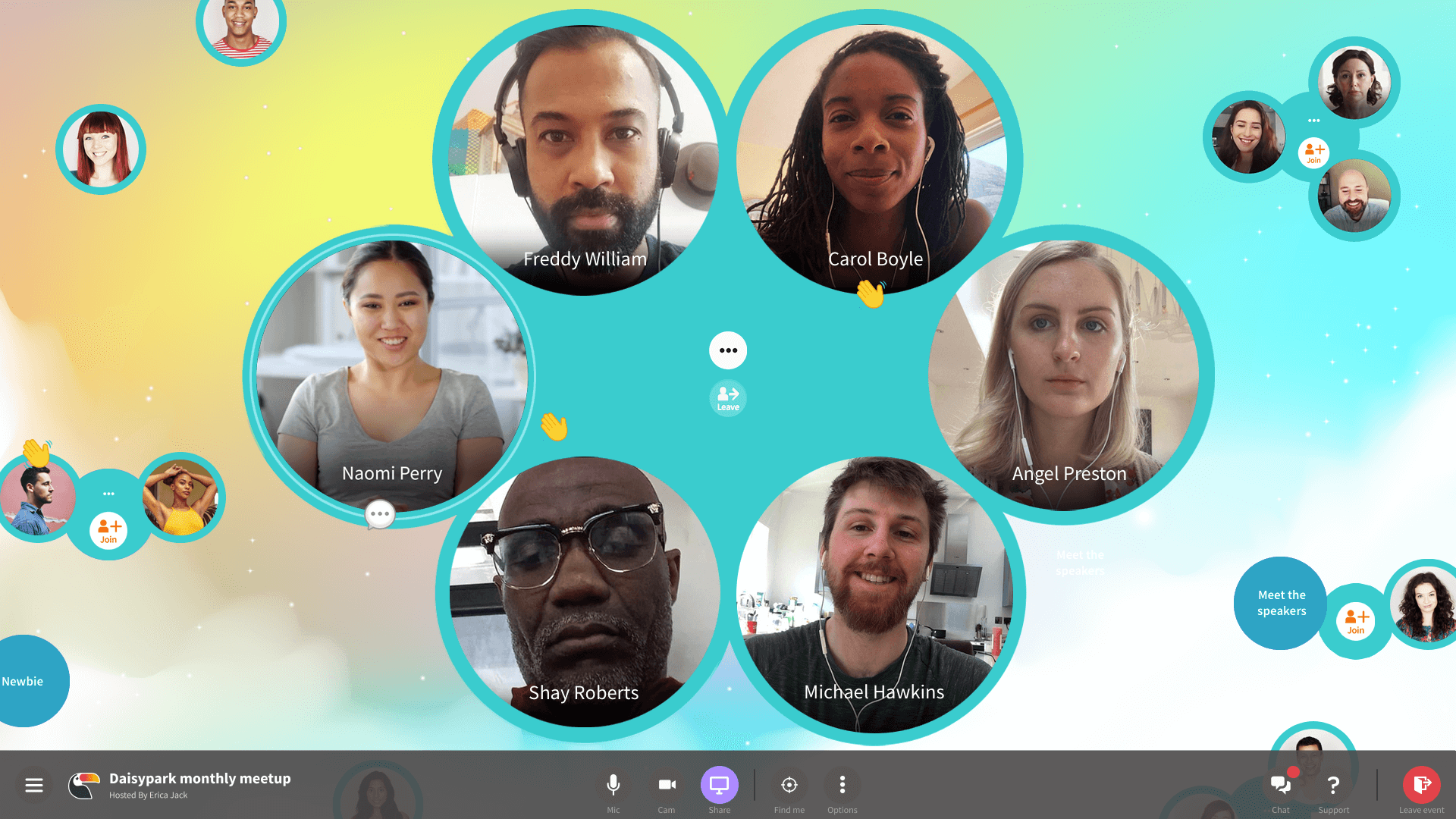
What does your innovation do?
Toucan is a next-generation video platform that delivers engaging online videos for distributed teams and professional networks. During Toucan events (such as onboarding sessions, training programmes, or networking events), more than 90% of people participate actively and form meaningful connections with one another.
What problem(s) does your innovation solve?
In the transition to remote work, many companies sacrifice their community culture. Toucan aims to reinforce teams’ social fabric in a way that comes naturally to all humans. It connects everybody together online and lets them move from group to group. This allows conversations to flow smoothly, unlike on traditional video conferencing platforms. .
How have you incorporated inclusion within the design of your innovation?
Toucan is designed to boost engagement at online events. Using principles of social psychology, the platform encourages everybody to participate, unlike on traditional video conferencing platforms, where often one or two people dominate the conversation. The platform encourages everyone to gravitate towards the groups in which they feel most comfortable, which results in significantly higher engagement and post-event satisfaction.
Useful documents
D&I systems map
The systems map is a reflection tool. Conference attendees can interact with the Systems map answering the following questions: • What parts of this inclusive leadership systems map particularly resonate with you? Do any parts of the map reflect your own experience in engineering? • If you’d like to, please use a post-it note to tell your story in a few sentences. What happened and what was the impact (positive or negative)?
Engineering Inclusive Cultures: Table Talks
Engineering Inclusive The Inclusive Cultures research puts forward four recommendations to for the engineering community to implement in their practice going forward. In your groups, choose one of the recommendations below and answer the following two questions: a) What are potential barriers to implementing this recommendation? b) What can we do to remove these barriers?
Our Diversity and Inclusion work and programmes
Equity, diversity and inclusion
Engineering needs people with different experiences, ideas, and perspectives so that we can respond with the best and m…
Graduate Engineering Engagement Programme
GEEP supports UK engineering students and recent graduates from under-represented backgrounds into engineering careers.…
Diversity Impact Programme
Providing grant funding of up to £100,000 for new projects in universities that address the unequal outcomes experience…
Inclusive leadership programme
A new and ambitious inclusive leadership programme, to increase inclusivity of engineering culture and the work enginee…
